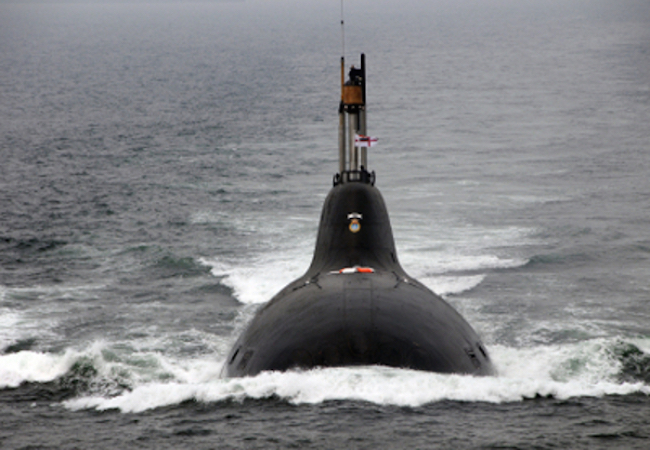Missile defense system might trigger a nuclear war

By Rameez Raja
It is largely believed by deterrence theorists like Kenneth Waltz that nukes have played an important role in avoiding major wars between the belligerent states, therefore, proliferation of nukes will be better to bring stability. However, the Cuban Missile crisis between the United States and former Soviet Union in 1962, the Yom Kippur War between Israel and Arab States in 1973, and the Kargil war between India and Pakistan in 1999 is a setback to deterrence theory where chances of nuclear exchange were very high.
India as well as Pakistan has a firm attachment with the nuclear arsenals as these are worshiped as a tool of security, power, status, pride, and sometimes used as a political weapon. The belief system among the nuke speakers for deterrence has been supported by realists as well as by neo-realists. However, offensive realists like John Mearsheimer are worried about the nuclear arms race between India and Pakistan due to close borders.
Mearsheimer in his The Tragedy of Great Power Politics argues that mighty oceans played a significant role between the US and former Soviet Union to avoid a major war. However, states which have close borders might kiss a nuclear winter in case they possess nuclear warheads and have bitter relationships. From this prescription, the case of India and Pakistan is a great source of alarm. Interestingly, Harman Kahn in his Thinking About the Unthinkable states that nuclear war can be won with the help of Missile Defence System (MDS), shelters, and evacuations in case deterrence fails.
India has disclosed several military tactics in order to fight a limited war with Pakistan under the nuclear umbrella. The Cold Start Doctrine and Surgical Strike is often unveiled by Indian military officials to warn Pakistan to halt cross border infiltration. Recently, Home Minister of India, Rajnath Singh has claimed publicly that Indian forces had crossed the border in Poonch sector of Jammu and Kashmir and killed three Pakistani soldiers in response to 17 Indian soldiers killed by Pakistan army. However, Pakistan has clearly stated that it will use the tactical nuclear weapons on its own soil against Indian forces in defence. In addition, the military officials of Pakistan have clearly stated that Pakistan will respond with strategic nuclear weapons to any conventional attack on Pakistan by India.
The nuclear strike in response to Indian conventional attack by Pakistan is a source of concern for India, that is why India has collaborated with several states, particularly with Israel, to build a MDS in order to destroy the incoming missiles from Pakistan. For instance, India has decided to install an indigenous MDS in two villages (Alwar and Pali) of Rajasthan to destroy the incoming missiles from rival nuclear state Pakistan. Interestingly, there is an indication that Pakistan army is also insisting to buy the S-400 missile air defence system from Russia. The S-400 is a combination of eight launchers with a total of 32 surface-to-air missiles. Also, Pakistan might buy the Chinese-made HQ-9 surface-to-air missiles as the HQ-9 deal between Pakistan and China was held in early 2015.
Harman Kahn has already talked about the MDS to win a nuclear war in case deterrence fails. Kahn also argues that nuclear war is morally right. The political scientist, Scott Sagan is worried about the nuclear brinkmanship in the South Asian region due to the organizational biases in the context of India and Pakistan. The installation of MDS might prompt a nuclear war because of its advantage and it might support the nuke speakers who want to trigger a nuclear strike to destroy the opponent in a blink. The Pakistan military has over all control of nuclear warheads and they treated nukes as an object rather than an element of national security. Similarly, on several occasions Indian military officials have wished to nuke Pakistan to settle the issue of Kashmir once for all.
It is apparent that after the installation of MDS, both India and Pakistan might move towards the shelters, shells, and evacuations to support a nuclear war in case deterrence fails which Kahn actually talks about. And due to an unfavorable geo-strategic location, India and Pakistan are vulnerable to each other which might be one of the reasons for the failure of deterrence in the region. The numerous studies on India-Pakistan nuclear brinkmanship understands that the war/nuclear crisis has been mediated by the United States rather than by any logic of nuclear deterrence. Thus, it is clear that with the installation of MDS, the chances of nuclear war cannot be ruled out in the South Asia.
The other factors for the failure of deterrence in South Asia is the absence of ‘fear of nukes’ among the military officials of India and Pakistan. Moreover, rationality is the key element for the success of nuclear deterrence which Waltz’s deterrence theory totally ignores and is absent in the context of India and Pakistan. There are significant evidences of a sign of irrationality among the policy makers and military officials of both states which cannot be misjudged. Both states have exchanged nuclear threats during Brasstacks crisis, Kashmir uprisings in 1989, Kargil war of 1999, and the Operation Parakram against each other with deployment of nukes on their borders to annihilate each other.
Rameez Raja is pursuing Ph. D at Department of Political Science, Jamia Millia Islamia, New Delhi. He specializes in India’s nuclear policy. His writings have previously appeared in Rising Kashmir, Café Dissensus Everyday, Kafila, South Asia Journal, Foreign Policy News, Modern Diplomacy, Pakistan Observer, Kashmir Observer, and Kashmir Monitor.




